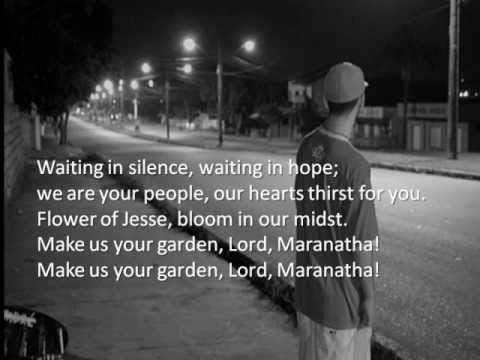Readings: Jer 33:14-16; Ps 25; 1 Thess 3:12-4:2; Lk 21: 25-28, 34-36
The first Sunday of Advent marks the beginning of a new liturgical year. If ever the Catholic Church was in need of a year to end, it was this past one. Advent, while pointing us toward the Incarnation of Jesus at Christmas, begins with a different anticipation, of the second coming of Christ – it begins exactly where ordinary time ends.
The second coming is a reminder that the waiting and longing for the Messiah to come is not over for Christians. While that waiting is pervaded by the joys of knowing what has already happened, it is not thereby truncated, as if we are merely re-watching a TV series, still drawn in the plot, but no longer uncertain about how everything will be resolved. It’s almost as if we have the hope THAT it will all be resolved, but not the clear anticipation of HOW. What we are given is a promise, and so in a real sense, we are still in the position of Abraham called to venture to a faraway land or of Israel in exile.
The ultimate promise – the “eschatological” or final promise in theological lingo – is represented in Scripture by a complex mixture of what theologian Robert Jenson describes as “the poetic and the propositional.” The distinction is helpful for this week’s readings. Some of the content, like signs in the sky and people riding along on clouds, is clearly poetic – that doesn’t mean it’s not true, it just means the language requires a certain interpretation. Working out this morning, I heard John Hiatt’s 9/11 tribute song, “When New York Had Her Heart Broke” and thought about those “earth-shattering” events – and we all know how to interpret that language. But the poetic points us to the propositional: it’s evidently a day when God comes to set things aright, to rule with the fullness of justice – and that the earth is far from ready for such a rule. It’s evidently a temptation to forget such a day is promised, and to go about our lives without paying attention – to fail to keep charity within the Christian community (as Paul reminds the Thessalonians) or to get stuck in the “anxieties of daily life” (as Jesus warns).
If the readings take a rather hard view of the way things are – poetically noting that the day will “assault” everyone – then we are called to recognize all the ways in which God’s promise is for “something different” – and that we are comfortable in many ways with business as usual, with the way things are, with the compromises that we make in negotiating our own lives. The presence of gross and scandalous public corruption in church and world can itself blind us to the smaller-but-real ways in which we ourselves are not ready for what awaits. Advent is a season of hope, not of repentance. But that hope is not a sunny, optimistic sense of everything “working out OK.” It’s of God’s will for the creation being done on earth as it is in heaven. If we hold on to that hope, we also become forgetful and less than vigilant for it. And so maybe one could suggest an Advent not of repentance, but of a renewed paying attention in our lives to what we truly await in the end. Not February. Not the next election. But for something truly different.





